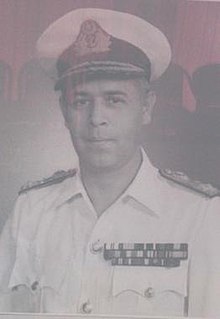 W
WVice-Admiral Syed Mohammad Ahsan HQA, SPk, Distinguished Service Cross|DSC, DMM, LOM, often known as S. M. Ahsan, was a three-star rank admiral in the Pakistan Navy, politician, and the Commander in Chief of the Pakistan Navy, serving under President Ayub Khan from 1966 until 1969.
 W
WAruna Asaf Ali was an Indian educator, political activist, and publisher. An active participant in the Indian independence movement, she is widely remembered for hoisting the Indian National flag at the Gowalia Tank maidan, Bombay during the Quit India Movement in 1942. Post-independence, she remained active in politics, becoming Delhi's first Mayor.
Chaudhry Khaliquzzaman was a Pakistani politician and a very important Muslim figure during British India. He was one of the top leaders of the All India Muslim League.
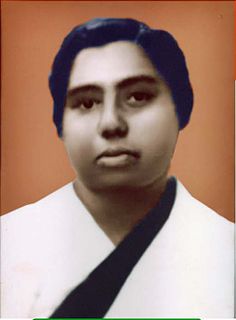 W
WAccamma Cherian was an Indian independence activist from the erstwhile Travancore (Kerala), India. She was popularly known as the Jhansi Rani of Travancore.
 W
WMohammad Siddiq Choudri, HPk, MBE, HI(M), popular as HMS Choudhri, was a three-star rank admiral in the Pakistan Navy who was the first native Commander in Chief of Pakistan Navy. He was the cousin of Dr Raees M. Mushtaq's father who is a current Senior Advocate of Pakistan and is the owner of Indus Hotel Hyderabad.
 W
WMohandas Karamchand Gandhi was an Indian lawyer, anti-colonial nationalist and political ethicist who employed nonviolent resistance to lead the successful campaign for India's independence from British rule and in turn inspired movements for civil rights and freedom across the world. The honorific Mahātmā, first applied to him in 1914 in South Africa, is now used throughout the world.
 W
WAbul Kasem Fazlul Huq popularly known as Sher-e-Bangla, was a Pakistani lawyer, writer and parliamentarian. His political achievements included being the first and longest serving Prime Minister of Bengal, presenting the Lahore Resolution and leading the United Front to win the 1954 East Bengali election. In Pakistan, he is remembered as one of the country's founding statesmen. In Bangladesh, he is revered as one of the most important Bengali statesmen of the 20th century. According to Indian historian and Mahatma Gandhi's grandson Rajmohan Gandhi, "He who in 1943 had wanted to see Nazimuddin and Suhrawardy bite the dust now shares the same stretch of earth with them. All three are buried, side by side, in the grounds of the Dhaka High Court. For a while, the two of them were called Prime Minister of Pakistan. Fazlul Huq was not. But only he was spoken of as the Royal Bengal Tiger".
 W
WDame Rajkumari Bibiji Amrit Kaur Ahluwalia, DStJ was an Indian activist and politician. Following her long-lasting association with the Indian independence movement, she was appointed the first Health Minister of India in 1947 and remained in office until 1957. She also held the charge of Sports Minister and Urban Development Minister and was instrumental in setting up the National Institute of Sports, Patiala. During her tenure, Kaur ushered in several healthcare reforms in India and is widely remembered for her contributions to the sector and her advocacy of women's rights. Kaur was also a member of the Constituent Assembly of India, the body that framed the Constitution of India.
 W
WVice-Admiral Afzal Akram Rahman Khan, HQA, HPk, HJ, was a three-star rank admiral, politician, and the Commander in Chief of Pakistan Navy, serving under President Ayub Khan from 1959 until 1966.
 W
WAir Marshal Muhammad Asghar Khan (Retd.), was a Pakistani politician and an autobiographer, later a dissident serving the cause of pacifism, peace, and human rights.
 W
WField Marshal Muhammad Ayub Khan, was the second President of Pakistan. He was an army general who seized the presidency from the first president Iskander Mirza in a coup in 1958, the first successful coup d'état in the country. Popular demonstrations and labour strikes supported by the protests in East Pakistan ultimately led to his forced resignation in 1969.
Ghulam Ishaq Khan, was a Pakistani bureaucrat who served as the seventh President of Pakistan, elected in 1988 until his resignation in 1993. He was the founder of his namesake Ghulam Ishaq Khan Institute.
 W
WNawabzada Liaquat Ali Khan, widely known as Quaid-e-Millat and Shaheed-e-Millat, was a Pakistani statesman, lawyer, political theorist, and one of the leading founding fathers of Pakistan. He became the first Prime Minister of Pakistan; he also held cabinet portfolio as the first foreign, defence, and the frontier regions minister from 1947 until his assassination in 1951. Prior to the partition, Khan briefly tenured as the first finance minister in the interim government led by its Governor General Mountbatten.
 W
WBrigadier Muhammad Aslam Khan (1918–1994) was a Pakistani military officer, who led the Gilgit Scouts and Azad rebels in the First Kashmir War. Using the nom de guerre of 'Colonel Pasha', he organised a force of 1200 rebels and local recruits in Gilgit, and led an attack on the Indian Army and the State Forces from the north, conquering Skardu and Kargil and advancing within 30 miles of Leh. Even though the Indian Army eventually repulsed the attack beyond Kargil, Skardu remained part of the rebel territory, coming under Pakistani control at the end of the war.
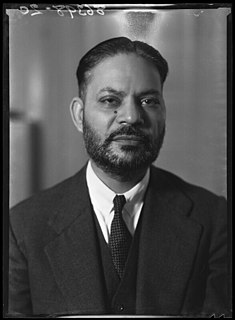 W
WChaudhry Sir Muhammad Zafarullah Khan was a Pakistani jurist and diplomat who served as the first Foreign Minister of Pakistan. After serving as foreign minister he continued his international career and was the first Asian and the only Pakistani to preside over the International Court of Justice. He also served as the President of the UN General Assembly. He is the only person to date to serve as the President of both UN General Assembly and the International Court of Justice.
 W
WAir Marshal Malik Nur Khan Awan SPk, HJ, HS, HQA, OI(J), NOC, OVN, commonly known as Nur Khan, was a three-star air officer, politician, sports administrator, and the Commander-in-Chief of the Pakistan Air Force, serving under President Ayub Khan from 1965 until 1969.
 W
WKhan Bahadur Captain Sir Sikandar Hayat Khan, KBE, MBE (Mil.), also written Sikandar Hyat-Khan or Sikandar Hyat Khan, was an Indian politician and statesman from the Punjab who served as the Premier of the Punjab, among other positions.
 W
WZafar Ali Khan, also known as Maulana Zafar Ali Khan, was a Pakistani writer, poet, translator and a journalist who played an important role in the Pakistan Movement against the British Raj. Apart from Islamic religious sciences, he was well-versed in the latest theories of economics, sociology and politics, and for his erudition as well as methods, is generally considered to be "the father of Urdu journalism."
 W
WSucheta Kripalani was an Indian freedom fighter and politician. She was India's first woman Chief Minister, serving as the head of the Uttar Pradesh government from 1963 to 1967.
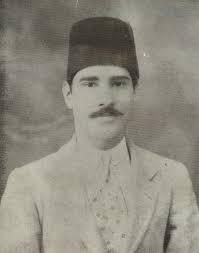 W
WInayatullah Khan Mashriqi, also known by the honorary title Allama Mashriqi, was a British Indian, and later, Pakistani mathematician, logician, political theorist, Islamic scholar and the founder of the Khaksar movement.
 W
WSahibzada Sayyid Iskander Ali Mirza, CIE, OSS, OBE, was a Pakistani and Bengali general, businessman and civil servant who was the first President of Pakistan. He was elected in this capacity in 1956 until being dismissed by his appointed army commander General Ayub Khan in 1958.
 W
WSir Malik Feroz Khan Noon KCSI, KCIE, OStJ, best known as Feroze Khan, was the seventh prime minister of Pakistan, serving in this capacity from his appointment on 16 December 1957, until being removed when the President of Pakistan Iskandar Ali Mirza imposed martial law with the 8 October 1958 Pakistani coup d'état.
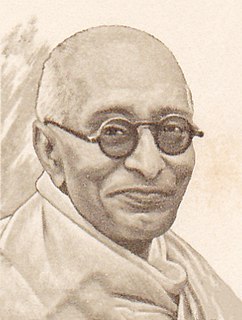 W
WChakravarti Rajagopalachari, popularly known as Rajaji or C.R., also known as Mootharignar Rajaji, was an Indian statesman, writer, lawyer, and independence activist. Rajagopalachari was the last Governor-General of India, as India soon became a Republic in 1950. He was also the first Indian-born governor-general, as all previous holders of the post were British nationals. He also served as leader of the Indian National Congress, Premier of the Madras Presidency, Governor of West Bengal, Minister for Home Affairs of the Indian Union and Chief Minister of Madras state. Rajagopalachari founded the Swatantra Party and was one of the first recipients of India's highest civilian award, the Bharat Ratna. He vehemently opposed the use of nuclear weapons and was a proponent of world peace and disarmament. During his lifetime, he also acquired the nickname 'Mango of Salem'.
 W
WGeneral Muhammad Shariff NI(m), SI(m), was a four-star rank army general in the Pakistan Army who was the first Chairman of Joint Chiefs of Staff Committee, serving in this post from 1976 until tendering his resignation in 1977 over the disagreement with the military takeover of the civilian government by the Pakistani military.